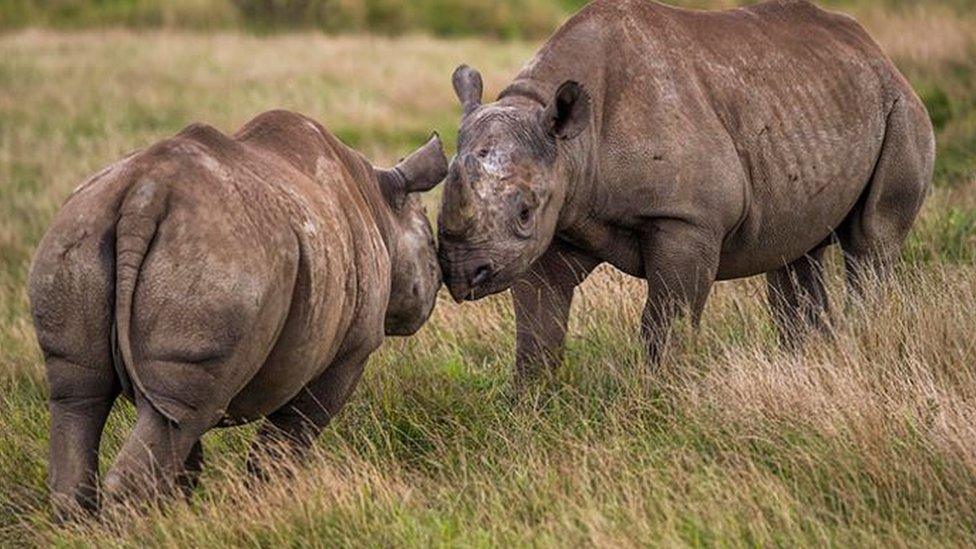Rescued brown bear put to sleep at Yorkshire Wildlife Park
- Published
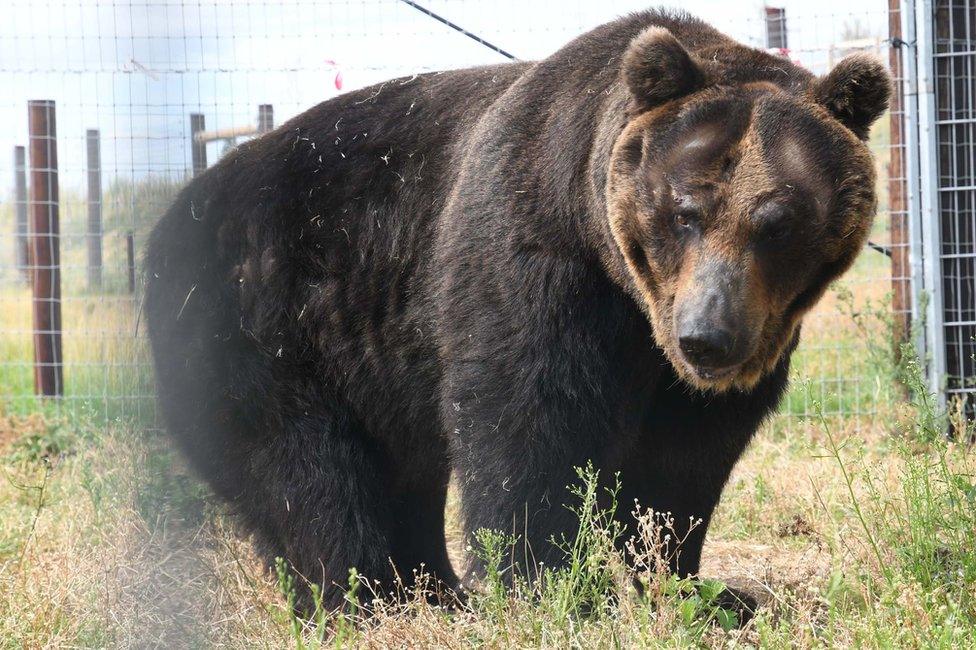
The four bears had been living at the Ainu Cultural Museum on the island of Hokkaido
One of four endangered bears rehomed in Yorkshire after being rescued from Japan has had to be put to sleep.
Ussuri brown bears Riku, Kai, Hanako and Amu were flown more than 5,400 miles after they were discovered caged in cramped conditions at a museum.
Vets examining Amu, the eldest animal, found chronic degenerative diseases which were "worse than first thought".
The Yorkshire Wildlife Park, which took the bears in earlier this month, said it was a "deeply difficult decision".
The park, near Doncaster, said the remaining three bears - two aged 17 and one aged 27 - "are in good health and thriving in their new surroundings".
In a statement the park said: "We regret to announce the death of Amu, the oldest of the rescued Japanese bears."
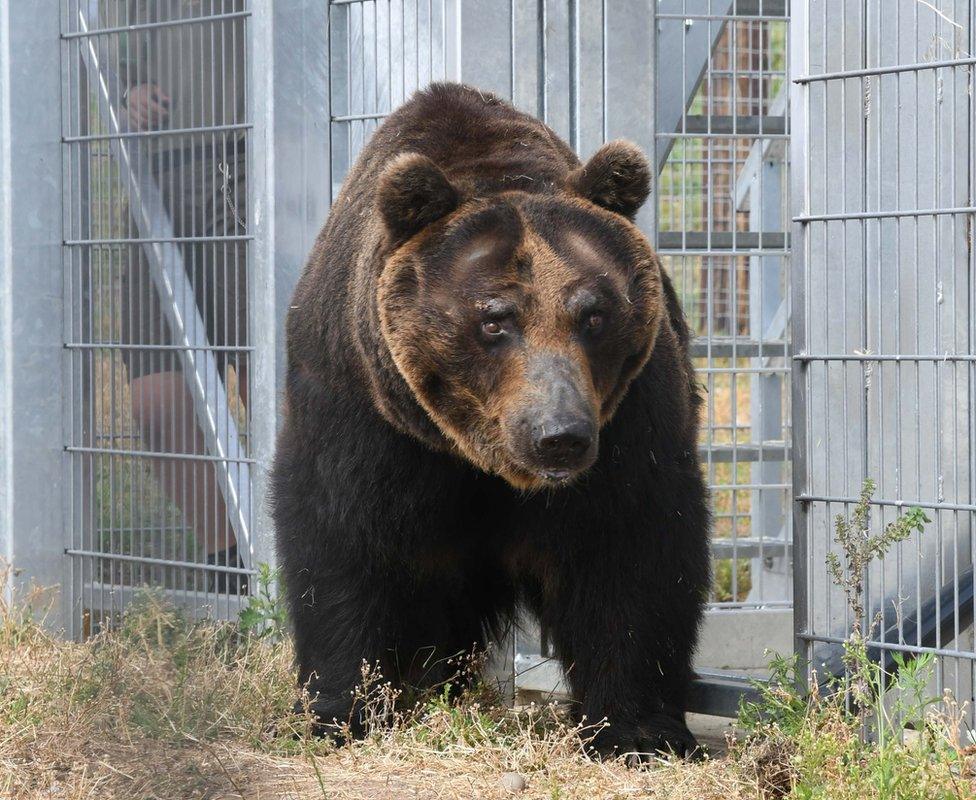
The animals were rehomed after animal welfare workers became concerned about their living conditions in Japan
The park said an extensive examination of Amu in the UK had revealed the full extent of several chronic degenerative diseases including arthritis and heart disease "which were unfortunately more severe than first thought".
A spokeswoman said: "Vets and park staff tried a wide variety of treatments, constantly monitoring his condition hoping to see improvement.
"Sadly, after weeks of trying to improve his health, the vets decided there was no choice but to put him to sleep.
"This was obviously a deeply difficult decision and very hard for the staff who had been caring for him since his arrival."
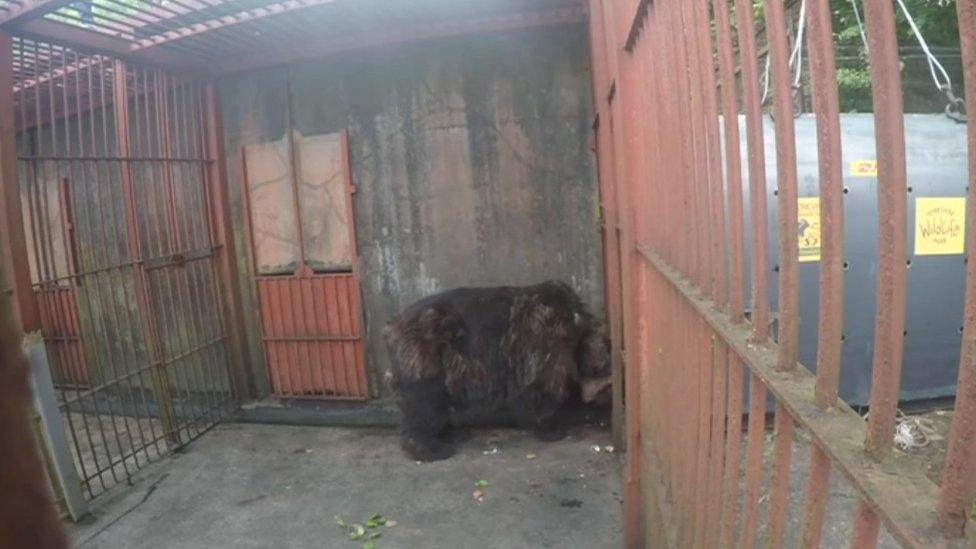
The bears were kept in cramped and outdated conditions in Japan
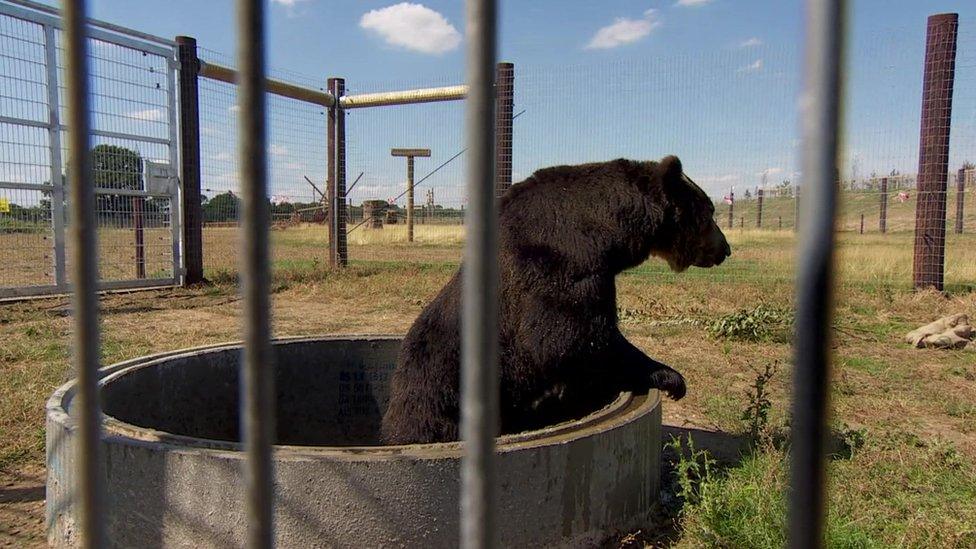
The bears were brought to a new home at the Yorkshire Wildlife Park
The bears were flown to London from Tokyo and then transferred to the park in an operation it described as "like clockwork".
They were being kept at the Ainu Cultural Museum on the island of Hokkaido when they came to the attention of animal charity Wild Welfare.
The Ussuri brown bear, also known as the black grizzly, can weigh up to 86 stone (550kg) and live up to 35 years.
- Published6 August 2018
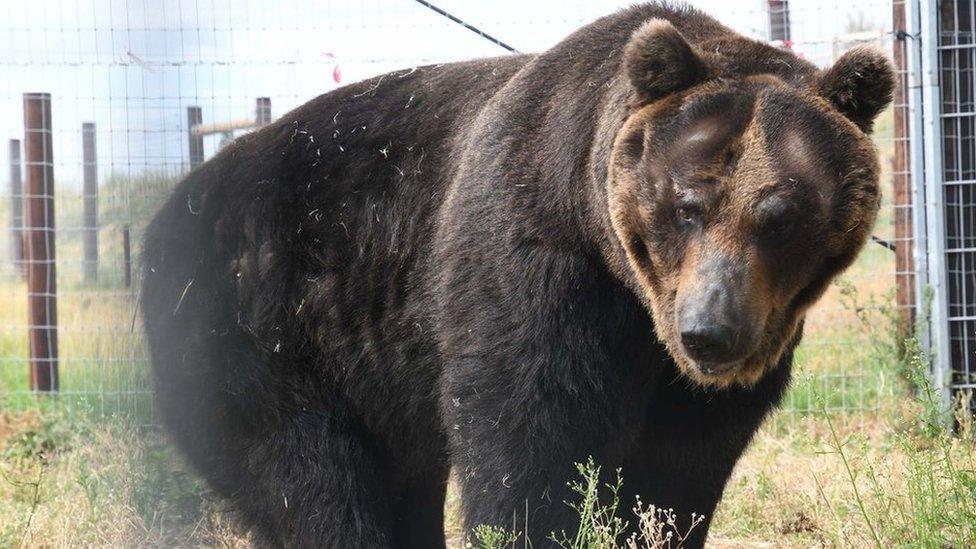
- Published9 January 2018
